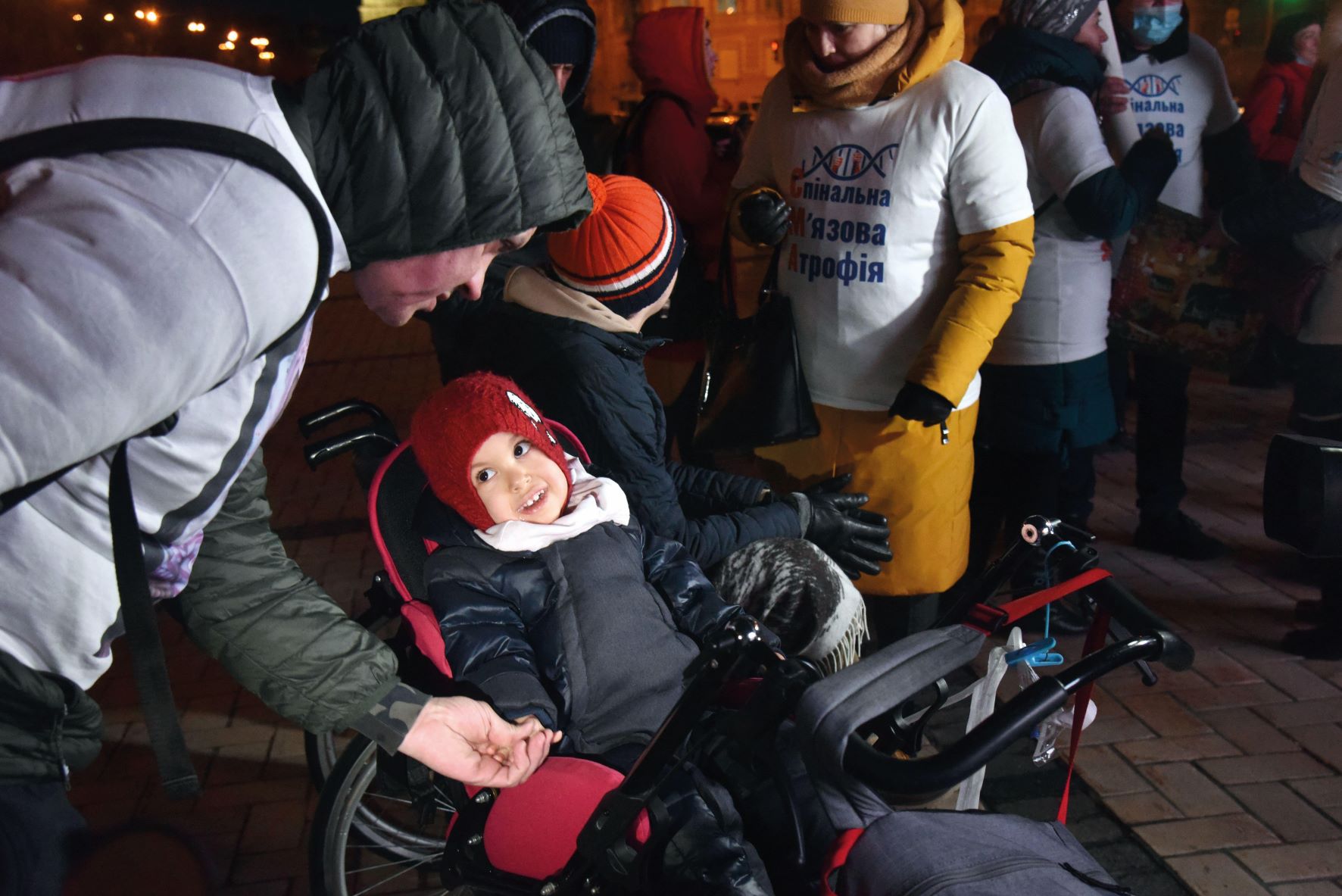The war in Ukraine and its consequences have been traumatic and created disruption for all Ukrainians. Even more so for an estimated two million citizens living with a rare disease, who typically require frequent and complex care or have disabilities affecting their mobility. In the context of warfare, these families face even greater difficulty to leave their homes to access care, food or other vital services, even when these are available.
The power of patient organisations
During the first months of the conflict, all humanitarian aid inside Ukraine was implemented by local actors. Rare disease patient groups in Ukraine have been at the forefront of supporting families with a rare disease, to a large extent with the support from foreign patient organisations, charities, donors, and pharmaceutical companies.
Our Rare Barometer Survey figures show the majority of Ukrainians living with a rare disease have been in contact with patient and aid organisations or volunteers since the beginning of the war. This includes those who stayed in their community in Ukraine (67%), but also those who left for another city (75%) or abroad (58%). Treatment or medicine, food and other basic supplies, as well as information on how to get access to services or benefits, were among the main types of aid provided by patient organisations to those affected by a rare disease.
Realising the potential of European Reference Networks
Despite the setbacks caused by the war, officials, clinicians and patient groups are working hard to support the rare disease patient community in Ukraine. Thanks to the joint efforts of European Reference Networks, the European Commission, SJD Barcelona Children’s Hospital, and healthcare professionals, the Rare Diseases Virtual Hub was established in June 2022, to help Ukrainians in the EU navigate European specialty centres. The hub has since moved to Kyiv, where it operates with the support of Ukraine’s Ministry of Health, the National specialised children’s hospital ‘Ohmatdyt’, EURORDIS-Rare Diseases Europe and the European Commission.
In addition to providing help to rare disease patients, the hub has equally allowed clinicians from across the EU to look for new and innovative ways to support their counterparts in Ukraine, and even look to build speciality skills in Ukrainian doctors now working in European clinics so they come back with additional skill sets.
With such a framework in place, we can see the vision of European Reference Networks (ERNs), as a system to tackle the public health needs of the 30 million people living with a rare disease across Europe, realise.
 2021 Kyiv - A child on Rare Disease Day event
2021 Kyiv - A child on Rare Disease Day event
But it also shows the major gaps, which still need to be properly addressed. Without recognition of the time and effort required to deliver their functions and the currently limited funding available, the ERNs will continue to be under considerable pressure to fully deliver on their potential.
Likewise, the success of ERNs also depends on Member States implementing the necessary structural changes in their health systems to use, adopt, and where necessary adapt, the ERNs’ recommendations, guidelines, care pathways, standards of care and educational resources.
Reaching equity through EU joint procurement for orphan medicines
Poland, Germany and the Czech Republic host the largest numbers of displaced Ukrainians - 1.5 million, 1 million and nearly 500,000 respectively. Among them are rare disease patients who need access to specialty pharmaceuticals and other life-saving healthcare services.
With the influx of Ukrainian refugees in the EU, we can only assume that this will further deepen disparities in access to rare disease treatments across the bloc, which are already often not accessible to affected citizens.
This article was commissioned as part of a series focused on Rare Disease Day 2023, in partnership with Takeda, Eurordis, Efpia and Eucope. Click here to read the full report
The COVID-19 pandemic has shown that joint strategic procurement of medicines is feasible and should be encouraged. More than ever before, we need to transform the pandemic experience into a sustainable purchasing system for rare disease treatments, to reduce the burden across the national healthcare systems and ensure patients in the EU continue to get the necessary medicines, no matter where they live.
Sign up to The Parliament's weekly newsletter
Every Friday our editorial team goes behind the headlines to offer insight and analysis on the key stories driving the EU agenda. Subscribe for free here.